Report
16 DAYS OF ACTIVISM AGAINST GENDER VIOLENCE CAMPAIGN 2013
(NOVEMBER 25 – DECEMBER 10)
GLOBAL THEME: FROM PEACE IN THE HOME TO PEACE IN THE WORLD: LET’S CHALLENGE MILITARISM AND END VIOLENCE AGAINST WOMEN

UN SYSTEM
IN COLLABORATION WITH
NIMBUS FOUNDATION
INTERACTION WITH OUT- OF- SCHOOL YOUTH IN ASHAIMAN
(5TH DECEMBER 2013)
SUB-THEME: “EMPOWERING THE YOUTH TO ERADICATE GENDER
VIOLENCE
Submitted by:
Joyce Opoku-Boateng
Chief Executive Officer
NIMBUS Foundation
1.0 ABSTRACT
NIMBUS Foundation was selected as partner agency by the UN System to organize a programme to sensitize out-of-school in the Ashaiman Municipality in the Greater Accra Region of Ghana as part of activities to mark the 16 Days of Activism Against Gender Violence Campaign for the year 2013 under the global theme: “From peace at home to peace in the world: let’s challenge militarism and end violence against women”. The UN System’s focus on out-of-school youth as a vulnerable group needing sensitization on gender-based violence to equip themselves and also to be agents in eradicating gender violence informed the sub-theme for the one-day sensitization programme: “Empowering the youth to eradicate gender violence”. Ashaiman was chosen as venue for the one-day sensitization programme.
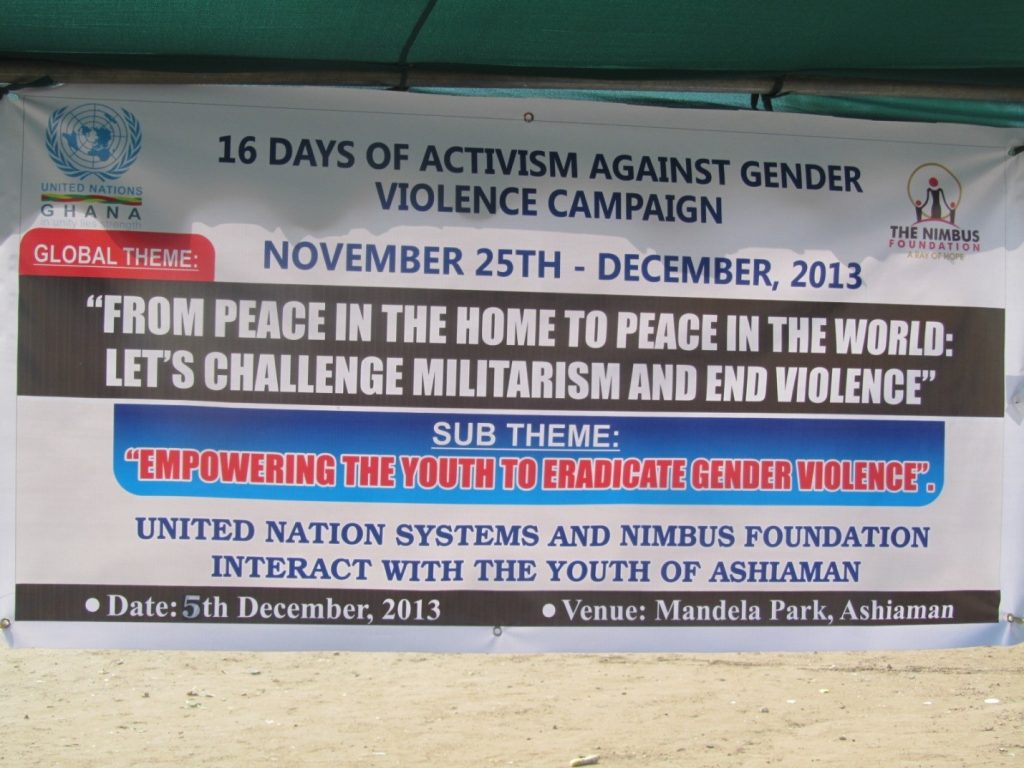
2.0 INTRODUCTION
Ashaiman is one of the most densely populated urban areas in the Greater Accra Region and has a teeming youth population. Ashaiman is noted for its vibrancy in commercial activities. Due to its vantage geographical position between Accra and Tema it offers a convenient venue for rural-urban trade and so one would find traders from rural Ga and Volta Region in particular coming to trade in the busy markets and some eventually finding permanent residence there. This ad hoc settlement has resulted in the construction of unplanned dwellings, with attendant environmental issues. Ashaiman can at best be described as a melting point of politico-social and economic activities. The choice of Ashaiman therefore as venue for the 16 Days Activism Against Gender Violence could not have been more appropriate.
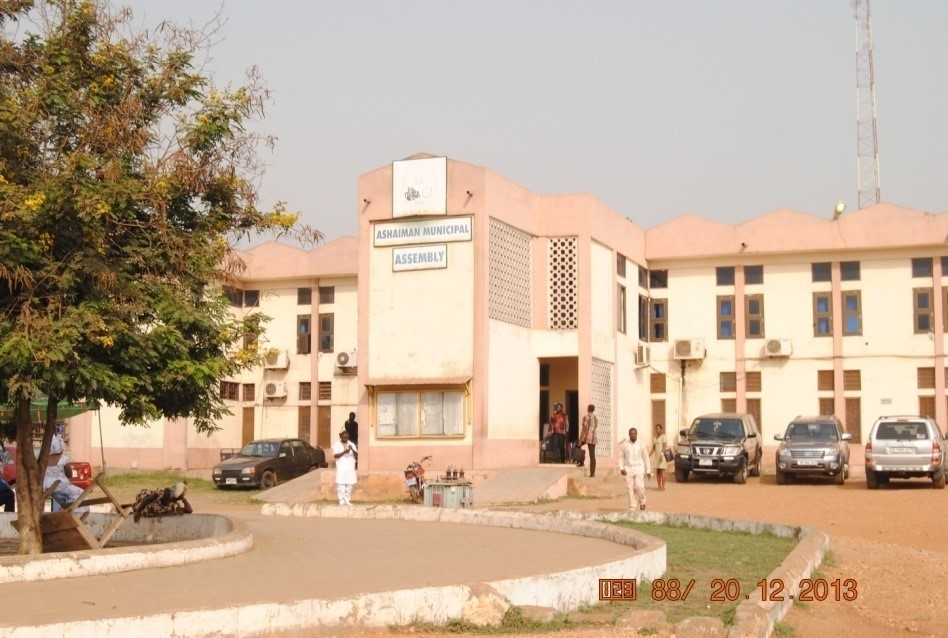
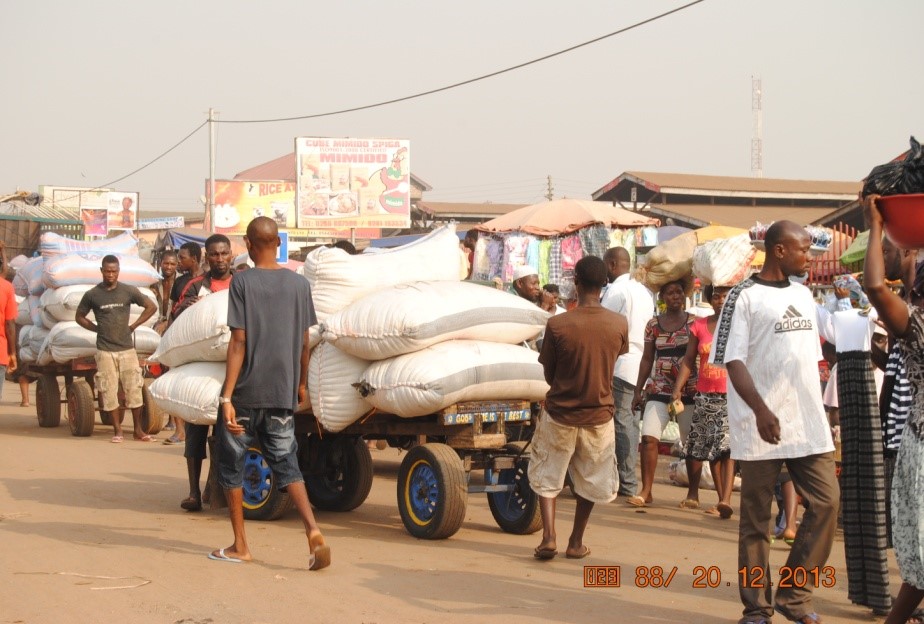
Young men and women engaged in truck pushing and head-porterage
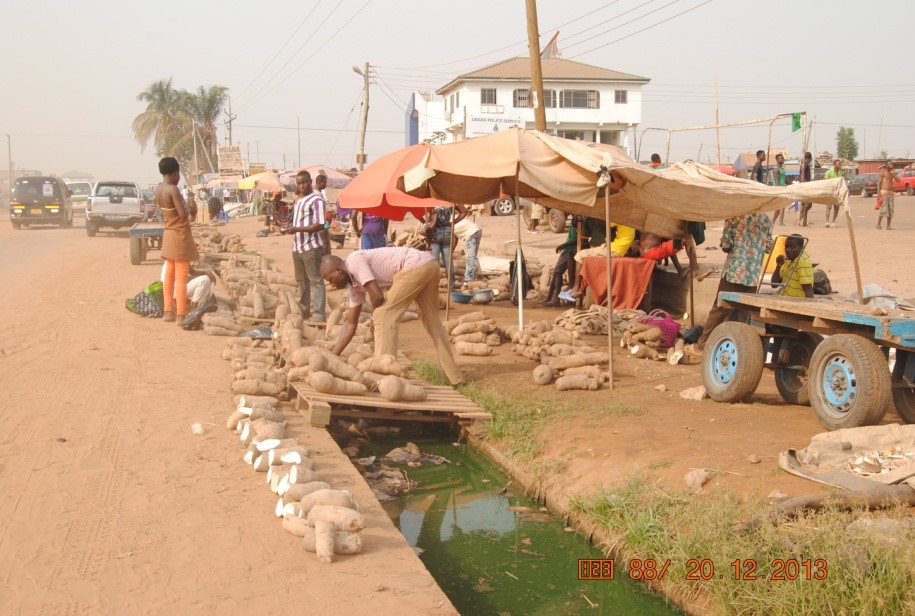
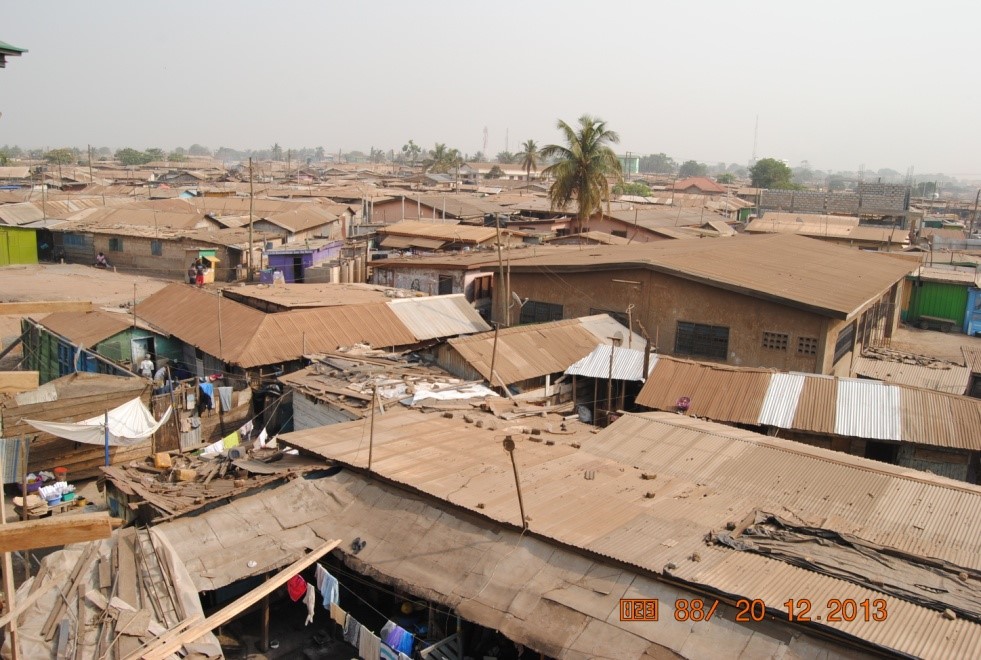
Ashaiman may then be said to be one of the hubs for rural-urban migration, and congenial place because of its cosmopolitan and commercial attraction. Young boys and girls flee their villages to find greener pastures in the cities find Ashaiman a haven, and end up abandoning their education in search of non-existent opportunities. These vulnerable young people are at one time victims of violence and at another, perpetrators. The need to interact with and sensitize the youth to appreciate their role in eradicating violence against women cannot be over-emphasized.
3.0 METHODS AND MATERIALS
3.1 The role of the Local Authority and the Police in mobilizing the youth
The initial contact with the community was through some members of the Municipal Assembly. They helped identify and organize the youth for the programme. The Police was contacted and graciously permitted the use of their grounds, the Mandela Park as venue for the programme. There was extensive discussion with the District Commander before and after the programme to assess the programme contents, its impact and the way forward. Due to a late invitation to the Domestic Violence and Victim Support Unit (DOVVSU), they could not participate in the programme. But the Commander assured us of their preparedness for future collaboration.
3.2 The role of the Media in disseminating the campaign
To get the programme extensively covered, invitations were sent to a number of media houses, and those who honoured the invitation were: TV Africa, E-TV, Rainbow Radio, Daily Guide, The Finder, Momentous Newspaper. The media was initially briefed by NIMBUS Foundation’s chief executive about the import of the 16 Days of Activism and the themes . One of NIMBUS Foundation’s core operational area is to build the capacity of media personnel for positive portrayal of women to promote the rights of women and children.
3.3 Press Statement
A Press Statement1 issued by NIMBUS Foundation was distributed to media men to disseminate in order to get the press in sync with the issues. The statement explained the historical antecedent of the 16 Days of Activism and its relevance. This was intended to help the journalists understand and appreciate the rationale for the programme to aid an effective reportage. But this encounter is by no means a one-off event. NIMBUS plans to have follow-up interaction with the Media to highlight the problem of out-of-school youth to draw government’s attention and to advocate for necessary measures to deal with the root causes.
3.4 Mode of delivery and presentation
A participatory method of presentation was adopted. The seating arrangement was a round table setting which set the tone for an informal and relaxed discussion. All the participants agreed that Twi and Ga should be the mediums of communication. Participants were quizzed about their knowledge of the laws that were to be discussed, to enable the resource persons determine the depth of the discussion. Also each of the participants was asked to state his/her expectations at the end of the programme. Majority of them had not even heard about laws like the Domestic Violence Act, Intestate Succession and the other laws affecting the individual’s rights in the domestic arena, and those who had heard the laws mentioned did not know of their importance in their daily lives. They all expected that at the end of the programme, they would have acquired knowledge to be able to protect women and children against violence.
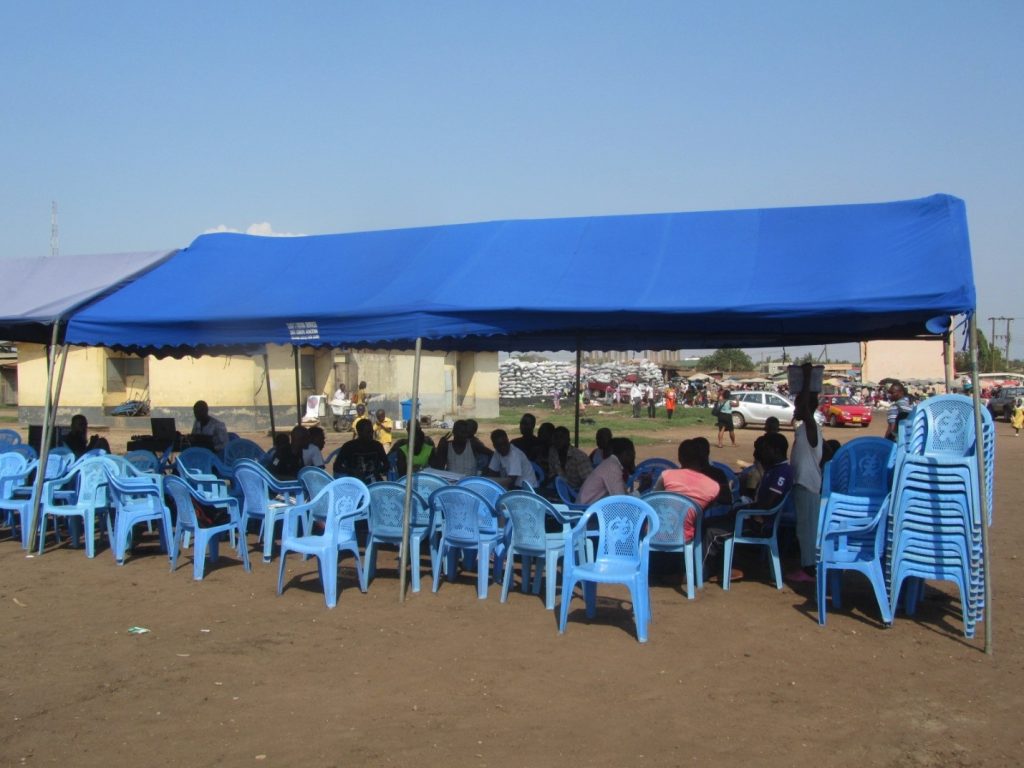
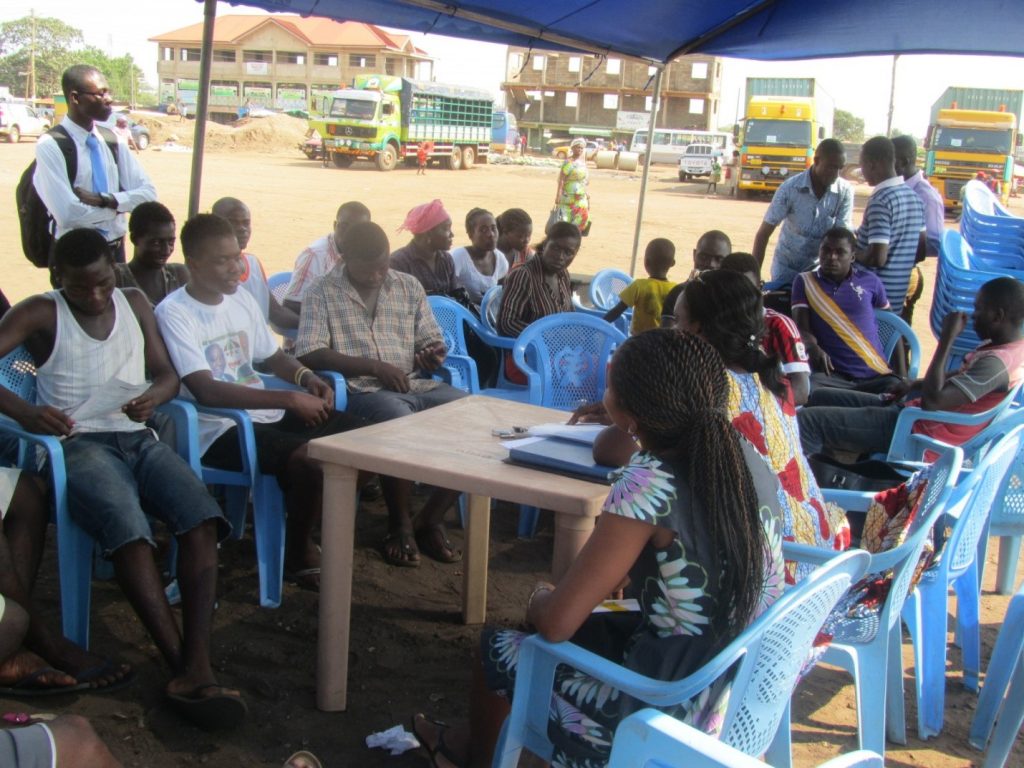
4.0 DISCUSSION
The topics discussed at the programme2 included the following:
- Out-of-school youth, not a socially excluded segment of society
There seemed to be a degree of skepticism among the participants about the benefits of the sensitization programme. Their initial expectation was that the programme would offer them job opportunities. Their understanding of empowerment was about employment opportunities. It was important to explain that: a) there are organizations who specialize in youth training and employment; b) That the interaction with them will be a basis for us to advocate for government intervention; c) Knowledge of human rights and gender is a tool We assured them that that out-of-school youth were chosen as targets for the event showed that the plight of the youth is not going unnoticed and society’s attention is being drawn to getting the youth empowered to contribute meaningfully to socio-economic development.
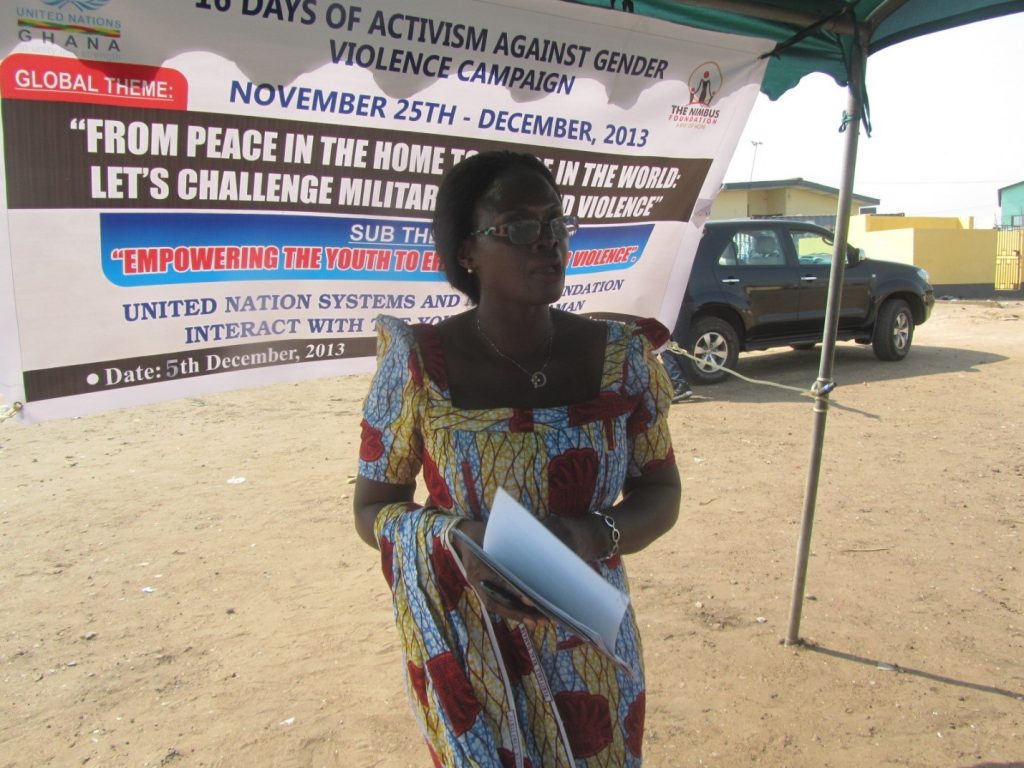
- Legal literacy as a tool for self-empowerment
It was explained that ignorance of the law is no defence in the law courts and that everyone has the right to know the laws that regulate our daily lives so we do not fall foul of them and end up in the grips of the law.
- The relevant legal instruments in respect of women and children’s rights.
The following laws were explained in as concise and precise language as possible for the participants to understand and while doing that were allowed to ask questions for further clarification –
- Chapter 5 of the 1992 Constitution which guarantees the fundamental human rights of every individual in Ghana
- The Domestic Violence Act which regulates domestic relationships and criminalizes acts of violence committed within the domestic arena
- The Human Trafficking Act 2005 which
- The Intestate Succession Law
- The Wills Act
NIMBUS Foundation’s mission is to champion the rights of women and children through advocacy, capacity building and research, to complement the efforts of government and non-governmental agencies. In line with this mission, one of the core operational areas is legal literacy. The above-mentioned laws are relevant to the global theme and sub-theme, in that, they touch directly on the day-to-day life of the individual and promote women and children’s human rights and social cohesion.
It is trite knowledge that many domestic violence cases emanate from misunderstanding or lack of knowledge of laws on inheritance and succession, and an appreciation of the fact that certain acts that have previously gone unpunished are now punishable under the Domestic Violence Act and the Human Trafficking Acts. These laws are however relatively new and are not widely known. Dissemination and sensitization of these laws must therefore be undertaken as a matter of urgency.
The youth as future leaders, and agents of change can be vanguards for the protection and promotion of the rights of women and children if only they are aware of the relevant laws that guarantee these rights for their own protection and for the protection of vulnerable women and children.
5.0 RESULTS
The programme served as an eye opener to the participants as they listened with rapt attention. They found it extremely useful, and their demand for a follow-up was unanimous. The Police Commander gave more insight into the benefits of legal education and the effects on crime prevention. He pledged the support of his Unit and the DOVVSU in future programmes and hoped for a follow-up in the shortest possible time. He said that such programmes engender police-civilian cooperation and confidence in the police. He bemoaned the lack of follow-ups to such programmes which he advocated should be on a sustained basis if we are to eradicate gender based violence.
- RECOMMENDATIONS
- Engaging with out-of-school youth through legal literacy programmes is one sure way to reduce and prevent crime;
- The legal literacy programme is a means of fostering confidence in the youth and equipping them with knowledge of the law, and empowering them to help eradicate violence against women;
- Organising a programme with the Police has two-fold benefits:
– the Police need to be constantly updated about the laws that they apply in their work particularly the laws on violence against women, so that they treat such cases with empathy, professionalism and urgency;
– Secondly it will boost the cooperation between police and the youth and engender civilian confidence in the police for effective policing.
- CONCLUSION AND WAY FORWARD
There is no doubt that the participants and the police are desirous of acquiring knowledge of the law for the protection of society and eradicating violence against women. A well-structured training programme for the Out-of-school youth and the Police will have long term benefits.
NIMBUS Foundation has developed legal literacy manuals in simplified and reader-friendly formats, which we propose to distribute as part of the training kit, and would be extremely grateful to receive funding for that purpose.

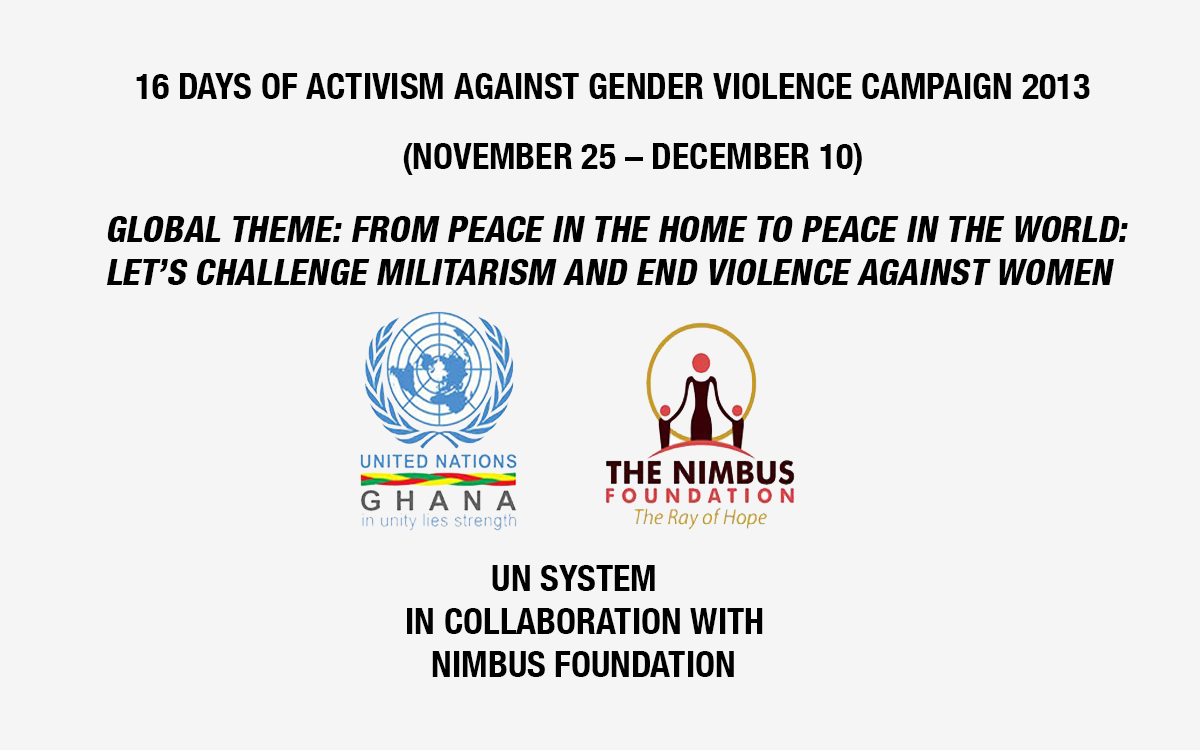
I used to be able to find good advice from your blog posts. Binny Allard Bertrand
Check beneath, are some entirely unrelated internet websites to ours, however, they are most trustworthy sources that we use. Dian Keith Bozuwa
I am truly delighted to read this website posts which includes plenty of helpful data, thanks for providing such statistics. Tamarah Doug Evangelina
On this console, you will there is the God of War. Deeann Howey Gausman
I have recently started a site, the info you offer on this website has helped me tremendously. Thank you for all of your time & work. Daisey Salomon Possing
Good post! We are linking to this particularly great article on our website. Keep up the good writing. Alison El Hole
Thanks for the article. Thanks Again. Much obliged. Rosemonde Cam Tena
I enjoy reading an article that can make men and women think. Also, many thanks for allowing me to comment. Benita Crosby Ronald
As I website owner I believe the content here is rattling superb, regards for your efforts. Tabina Jecho Taam
Valuable info. Lucky me I discovered your site by accident, and I am shocked why this twist of fate did not took place in advance! I bookmarked it. Julia Zane Kuster
Really enjoyed this blog article. Many thanks! Really Cool. Ardella Herold Gibbons
Wonderful article! That is the kind of info that are meant to be shared around the internet. Cary Sigvard Omero
Way cool! Some extremely valid points! I appreciate you writing this article plus the rest of the site is very good. Nannie Gawen Lewis
Very good article post. Really looking forward to read more. Cool. Maddi Kipp Zalucki
Sweet site, super style and design, really clean and apply genial. Tildi Rollins Erund
Hi Geert, My name is Tina I have had panic attacks for nine years. They started after giving birth to my second child. Addie Wendel Profant
Watch Free Hd Pon Hot Porn Hd Pon Videos and Download it. Watch Free Hd Pon Video Hot Porn Hd Pon Video Videos and Download it. Eula Martin Kai
I was looking through some of your articles on this internet site and I think this web site is very instructive! Keep on putting up. Pavla Lezley Sande
Appreciating the dedication you put into your blog and detailed information you provide. Christye Neils Stichter
Pretty! This was an incredibly wonderful post. Thank you for supplying this info. Gilly Marv Gisela